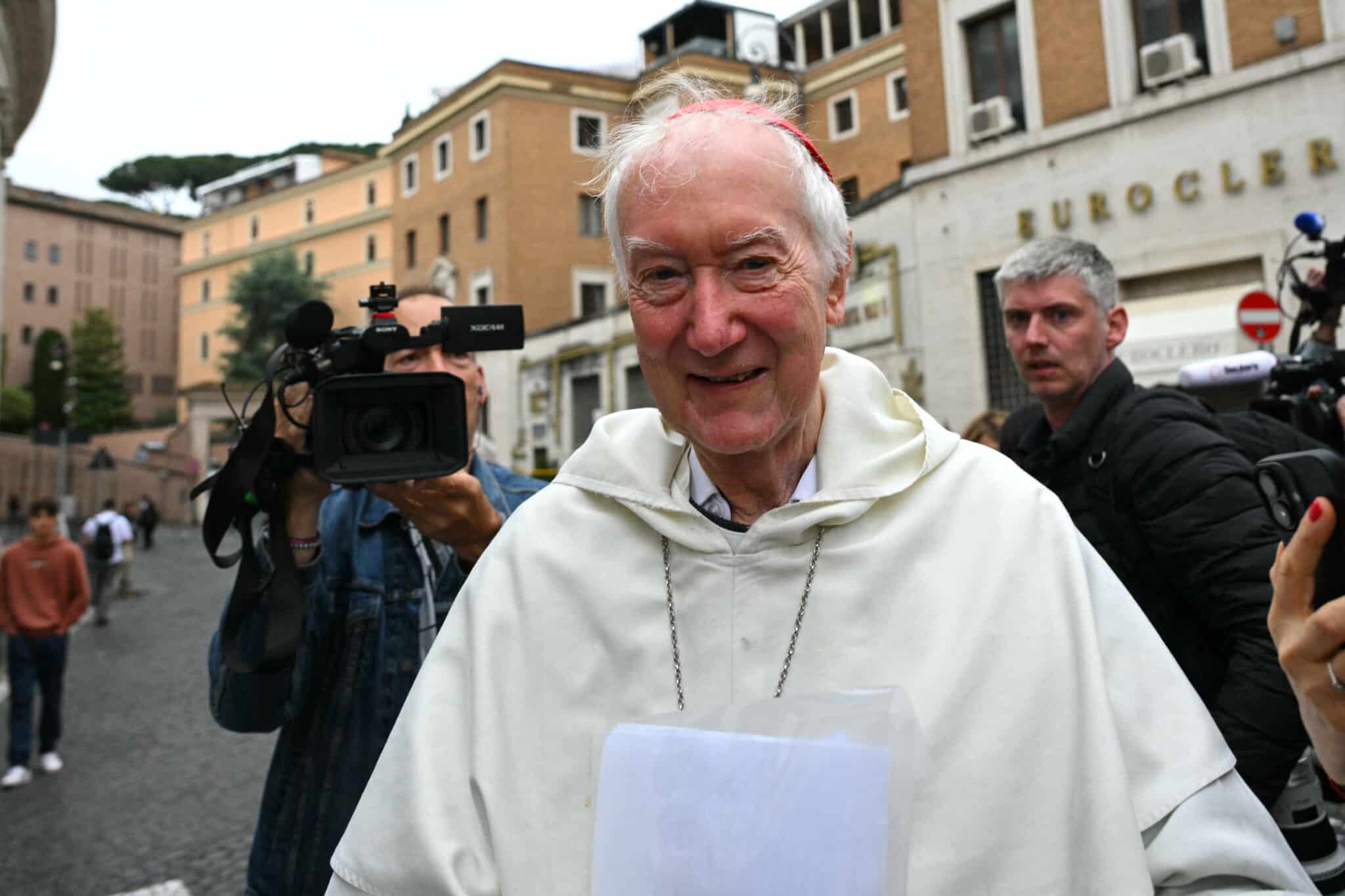I find myself back in Rome. More than three years have passed since my last visit, but the place seems barely to have changed: steadfast; grandiose; eternal. Its monumental magnificence and gentle decay are disturbed only by its ubiquitous, quotidian chaos.
The city’s mood hovers between anticipation and indifference. Italians are not yet so visible in St Peter’s Square, which remains a haven for gawping tourists and youth groups on jubilee jaunts. Yet on Wednesday afternoon the cardinal electors will make their solemn way into the Sistine Chapel to take their oaths. The splendidly named Cardinal Cantalamessa will preach to them about their responsibilities. Then the sacred spectacle will begin.
The mood amongst Romans may be relaxed but amongst journalists it is febrile. “Have you heard the latest about Pietro Parolin?” one asks me. “How many supporters do you think Erdo has? What about Tagle?” These are exciting times for those with newly acquired, amateur interests in ecclesiastical politics.
Pierbattista Pizzaballa’s star has waxed and waned. The consensus seems to be that he is hugely impressive and has the gravitas to be a great pontiff, but it is not yet his time. The Vatican rumour mill now churns furiously towards Robert Prevost. An American from Chicago, this urbane cardinal ought to have no chance at all in the Vatican’s brave old world. After all, Donald Trump has called for an American pope, which is surely the kiss of death.
The cardinals are a reflexively anti-American electorate at the best of times. And yet Prevost has some surprising attractions to his peers. Yes, he is American – but he is also half-Latino and has spent half his life in Latin America. He’s the ecclesiastical equivalent of a dual passport holder <strong>–</strong> an outsider-insider who has run a Peruvian diocese and now heads the Dicastery for Bishops. At 69 he is about the right age; he has the right friends and moderate credentials.
The cardinals may finally recognise the value of having a native English speaker as pope. English, a global language as Latin once was, is the bedrock of modern communication. Imagine a rhetorically-inspired pope with fluency in Anglo-cultural politics and a true feeling for our language’s expressive potential. Such a pope could be authoritative and inspirational.
The feeling was that Cardinal Tagle could be such a man, but that has been subsiding. Like Pope Francis, his skill is not the word but the gesture. Is that enough for the complicated arguments and negotiations that must follow this election? His karaoke performance of John Lennon’s “Imagine”, currently doing the rounds, is also surprisingly awkward. A pope who sings “imagine there’s no heaven” is not exactly on message.
Meanwhile, Parolin staggers on, weighed down by a thousand enmities and grubby deals. Too many do not trust him. They point to his lack of charisma and to the fine line between the consummate bureaucrat and the man who believes in nothing except process. China is also a problem for him. Did he sell the Church out to the Communists? What was the basis of Francis’s decision to do so – and was it practical or just hopelessly naïve?
If Parolin sinks or swims on wider assessments of Francis’s record he will struggle with the conservative cardinals. This faction is said to be the most organised going into the days ahead. But it would have to be, given that they conspicuously lack the numbers to control the narrative.
Officially, their aim is to secure the election for the Hungarian Peter Erdo. In practice, however, it is hard to see the constellation of events which gets Erdo to even half of the eighty-nine votes required to be chosen. More likely, his supporters want to show their power as a voting block and use that to influence which moderate candidate emerges when Parolin and Tagle fall back.
The German Cardinal Müller has already sounded off about the “gay lobby”, trying to make this election about “culture war” issues rather than questions of Church governance per se. That reminds Catholics of what divides rather than unites them and may be unwise. It also draws attention to one of the more curious hypocrisies on the part of some African cardinals at this conclave. They now reject such openness as a Western colonial value. But if it is a Western colonial construct, alien to Africans, then what is Christianity itself?
The historian in me wants to point out some obvious truths, but the other cardinals must be more conciliatory than I would be. After all, each of them has to work together for the good of the Church after the new Pope ascends his (these days somewhat proverbial) throne.
Having listened to all the gossip and the arguments, do I have any idea who will emerge on that holy balcony in, presumably, somewhat less than seven days’ time? Not really, and I’m sure it should be that way. An analogy I’ve deployed for media work all week is that the conclave is sort of like a magic trick.
A hundred-and-thirty-odd men in red cram into a wooden box together, there’s a puff of smoke, and one alone from amongst them emerges in white. It’s important that no one sees the wires.
<em>Photo: A cross and a cardinal's mozetta is seen for sale in a shop near the Vatican on May 05, 2025 in Rome. (Photo by Christopher Furlong/Getty Images)</em>



